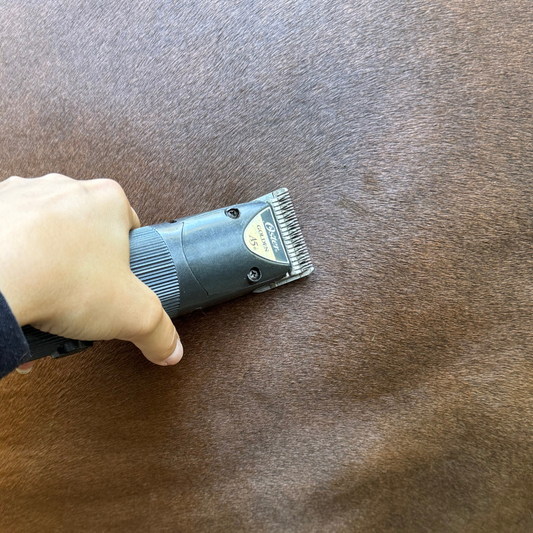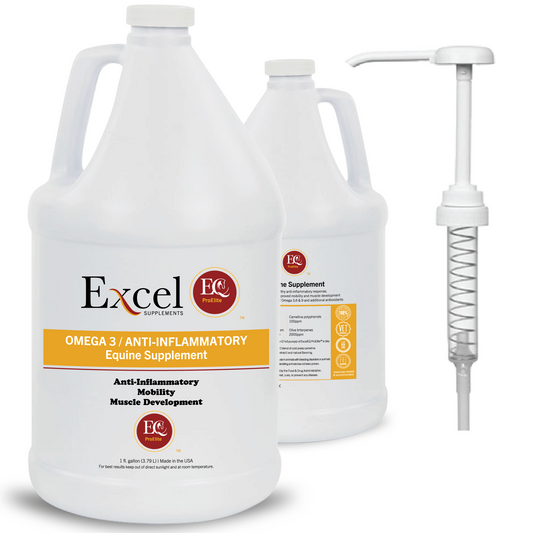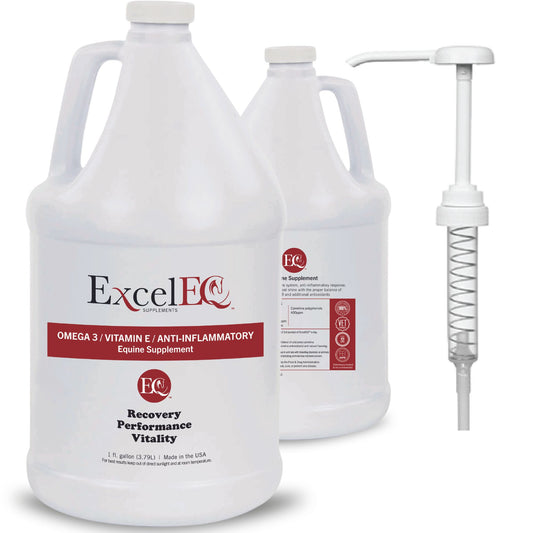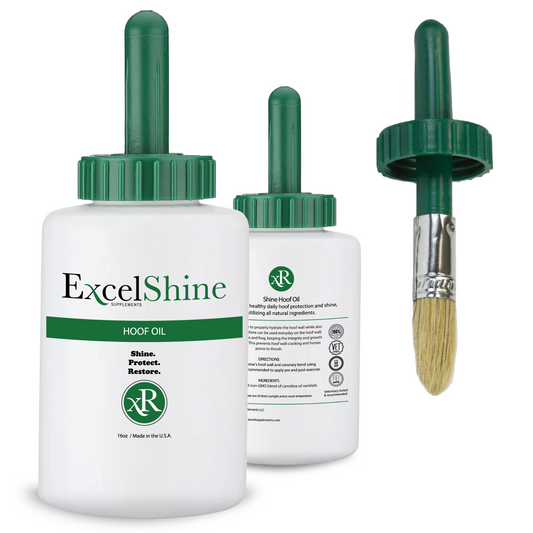Omega-3 Supplementation in Horses with Arthritis: Study
Share
Study Overview
This study explores the effects of omega-3 fatty acids on inflammation markers in mature horses suffering from arthritis. Specifically, the study focused on horses with arthritis affecting their knee, fetlock, hock, or stifle joints.
Experimental Design
Sixteen horses were categorized based on arthritis severity, affected joints, and age. They were randomly divided into two groups:
- Control Group (n = 8): Received a commercial 12% CP feed at 1% body weight (BW) daily.
- Treatment Group (n = 8): Received the same feed, plus an additional supplement of omega-3 fatty acids providing 15 g/day of eicosapentaenoic acid (EPA) and 19.8 g/day of docosahexaenoic acid (DHA).
Both groups had access to coastal bermudagrass hay at approximately 1.3% BW. Dietary treatments were administered for a period of 90 days.
Methodology
- Synovial Fluid Collection: Samples were collected from at least one affected joint on days 0, 30, 60, and 90.
- Blood Sampling: Blood samples were taken every 15 days starting from day 0.
- Force Plate Data: Collected from seven horses to assess changes in weight distribution on arthritic limbs.
Results
- Reduction in Inflammation Markers: The treatment group showed a significant reduction (P < 0.05) in synovial fluid white blood cell concentration and plasma prostaglandin E2 levels compared to the control group.
- Plasma Fibrinogen Levels: There was a trend (P = 0.076) toward lower normalized plasma fibrinogen concentrations in the treatment group. Significant differences (P < 0.05) in fibrinogen levels between groups were observed from days 30 through 90.
- Weight Distribution: No significant increase in weight placed on arthritic limbs (P = 0.12) was detected based on force plate data.
Conclusion
The study provides further evidence that supplementing horses with long-chain omega-3 fatty acids can be beneficial in reducing inflammatory markers and supporting joint health in horses with arthritis.
Related Research
-
Manhart, D. R., Scott, B. D., Gibbs, P. G., Coverdale, J. A., Eller, E. M., Honnas, C. M., & Hood, D. M. (Year). Markers of Inflammation in Arthritic Horses Fed Omega-3 Fatty Acids. Department of Animal Science, Large Animal Veterinary Hospital, and Physiology and Pharmacology Department, Veterinary College of Veterinary Medicine, Texas A&M University. Link
-
Headley, S., Coverdale, J. A., Jenkins, T. C., Klein, C. M., Sharp, J. L., & Vernon, K. L. (2012). Dietary Supplementation of Conjugated Linoleic Acid in Horses Increases Plasma Conjugated Linoleic Acid and Decreases Plasma Arachidonic Acid but Does Not Alter Body Fat. J Anim Sci, 90, 4876-4882. Full Text (PDF)
-
Hess, T. M., Rexford, J. K., Hansen, D. K., Harris, M., Schauermann, N., Ross, T., Engle, T. E., Allen, K. G. D., & Mulligan, C. M. (2012). Effects of Two Different Dietary Sources of Long Chain Omega-3, Highly Unsaturated Fatty Acids on Incorporation into Plasma, Red Blood Cells, and Skeletal Muscle in Horses. J Anim Sci, 90, 3023-3031. Full Text (PDF)






